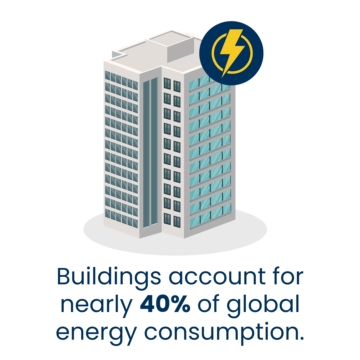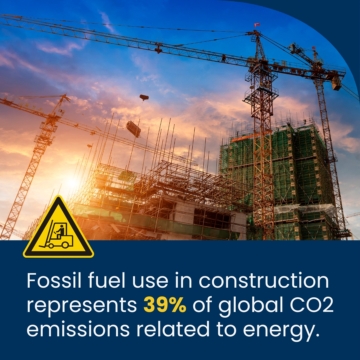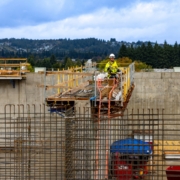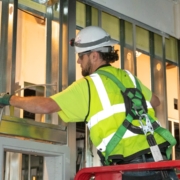Today’s electricians are key players in modern building construction, designing and installing complex, energy-efficient systems by using cutting-edge technology. Electrical innovation is always fast-paced, and skilled electrical professionals will be an asset as it evolves. Stay on top of these emerging trends.
Electrical Innovation in Construction
The electrification of everything has revolutionized the construction industry. Automation aids productivity, smart buildings improve efficiency, and advanced solar options promote sustainability. These four emerging technologies are expected to flourish in 2025 and beyond.
1) Smart Building Design 
Smart buildings rely on advanced systems to enhance automation and improve performance and efficiency. Utilizing state-of-the-art sensors and Internet of Things (IoT) devices, smart systems can connect wirelessly to appliances and networks. This level of automation can take the reins and control standard operations such as lighting, heating, air conditioning, ventilation, and security.
Smart building innovation brings enhanced occupant comfort, increased efficiency, and reduced energy costs to commercial buildings. These buildings are expected to save $18 billion in energy costs and 80 million tons of CO2.
2) Advanced Energy Storage
The rise of microgrid tech in the Pacific Northwest and throughout the country has opened the doors to sustainable and groundbreaking energy storage. Modern, battery-based electric storage systems (BESS) can store power over long periods of time and deliver energy on demand. This type of energy storage can help cover power outages, grow with energy demands, and integrate into renewable energy sources.
3) Solar & Renewable Energy Solutions
Building-Integrated Photovoltaics (BIVP) is taking solar energy to new levels. BIVP tech seamlessly integrates solar power into the overall structure of the building, including roofs, windows, and exterior materials. Unlike typical rooftop solar panels, which are external components, BIVPs are designed to merge solar generation with a building’s structural elements. Making energy production an integral part of the building itself, this tech promises increased efficiency, lower installation costs, and aesthetics.
4) Electric Construction Tools 
With all the new electrical technology at the forefront of sustainability efforts, the construction industry is following suit. Due to fossil fuel use, construction has played a significant role in greenhouse gas emissions in the past. In fact, it represents 39% of global CO2 emissions related to energy. However, in recent years, more companies have been utilizing electric construction equipment. Excavators, wheel loaders, forklifts, and mining trucks are becoming electric. Green tech equipment promises a reduced carbon footprint, less noise pollution, and lower project costs.
What Pacific Northwest Electrical Professionals Need to Know About Emerging Trends
Thanks to the CHIPS Act, futuristic infrastructure is coming to Oregon and Washington. As projects develop and grow, the electrical sector will need to be prepared to handle new tech. Also, as the industry changes, networking with other professionals will be a helpful resource.
The NECA/IBEW Local 48 Partnership Helps Grow the Pacific Northwest Electrical Industry
The NECA/IBEW Local 48 partnership comes together to bolster the electrical industry sector. Members gain access to continuing education, hands-on-training, trending industry resources, and compliance support. Discover more about membership opportunities.







